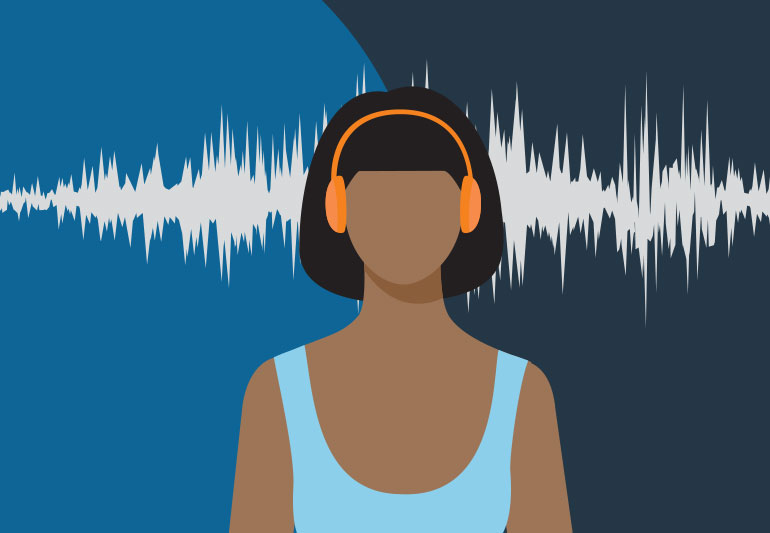Fitness, health and wellness tips sent to you weekly
It’s bedtime, and not a creature is stirring…except for your racing mind, that is. Why is it that even after a relatively anxiety-free day, our minds sometimes go into overdrive when our heads hit the pillow?
Cleveland Clinic is a non-profit academic medical center. Advertising on our site helps support our mission. We do not endorse non-Cleveland Clinic products or services. Policy
Psychologist Susan Albers, PsyD, talks about how to calm anxiety at night and even prevent it from happening in the first place.
When you lie down at night to unwind, your brain turns to all of the worries it didn’t have time for during the day. Frequently, this anxiety revolves around worries you can’t solve in the moment.
“All the things that have been put on the back burner come to the forefront of your head,” Dr. Albers says. “Without competing demands for your attention, these worries often get louder and more pronounced.”
Chronic daytime stress puts your body into overdrive and taxes your hormones and adrenal system, which are directly linked to sleep — so sleep troubles may be a red flag telling you to address stress during your waking hours.
Nighttime anxiety can trigger a vicious cycle: A bad night’s sleep leads to exhaustion the next day and disrupts your body’s natural rhythms. “This makes you more vulnerable to anxiety during the day that can bleed into the night,” Dr. Albers says. And so the cycle repeats.
When it comes to sleep, routine is your best friend.
But if you want to lessen nighttime anxiety, it’s still important to implement a specific nighttime routine.
“You can’t expect to go from 100 mph and then suddenly stop,” Dr. Albers says. Instead, institute a 30-minute transition between bedtime and the rest of your day.
Try quiet, tech-free activities that reduce your cortisol levels and help ease you into sleep, such as:
If you’re worried you’ll be too worried to fall asleep, head off nighttime anxiety with these all-natural tricks:
Try not to consume caffeine late in the day, whether in coffee or elsewhere. “Be mindful of what you’re consuming,” Dr. Albers says, “because too much caffeine can exacerbate existing anxiety.”
Just say no to doomscrolling before bed — the practice of taking in a barrage of bad news online. “Give your phone a bedtime before your own,” Dr. Albers advises.
And if anxiety keeps you awake or wakes you up, resist the temptation to break this rule and start using your phone. Your phone’s blue light signals your brain to turn back on, ultimately making it even harder to get to sleep.
“This is a No. 1 no-no for helping you fall back to sleep,” Dr. Albers warns.
If you wake up with anxiety in the middle of the night, these practical tips can help you stop tossing and turning:
And try to avoid self-medication with food, alcohol, or sleep aids, which can provide short-term help but won’t get to the root of your issues.
“Your breathing patterns are a signal,” Dr. Albers says. “When your breathing slows down, it sends a message to your brain and body that it’s time to go to sleep.” She suggests this 4-7-8 breathing technique from Dr. Andrew Weil:
Finally, if nothing seems to help your nighttime anxiety, check in with a physician or therapist, who can help get to the bottom of underlying medical conditions or anxiety disorders.
As you (try to) fall asleep, remember: Mindfulness is key. Rather than worrying about the future, focus on what’s within your control right now — like getting to sleep.
Cleveland Clinic is a non-profit academic medical center. Advertising on our site helps support our mission. We do not endorse non-Cleveland Clinic products or services. Policy
It’s bedtime, and not a creature is stirring… except for your racing mind, that is. Why is it that even after a relatively anxiety-free day, our minds sometimes go into overdrive when our heads hit the pillow?
source
